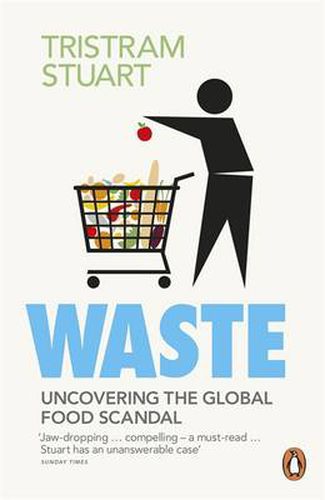Readings Newsletter
Become a Readings Member to make your shopping experience even easier.
Sign in or sign up for free!
You’re not far away from qualifying for FREE standard shipping within Australia
You’ve qualified for FREE standard shipping within Australia
The cart is loading…






WITH SHORTAGES, VOLATILE PRICES AND NEARLY ONE BILLION PEOPLE HUNGRY, THE WORLD HAS A FOOD PROBLEM - OR
THINKS IT DOES.
enough to feed all the world’s hungry at least three times over. Forests are destroyed and nearly one tenth of the West’s greenhouse gas emissions are released growing food that will never be eaten. While affluent nations throw away food through neglect, in the developing world crops rot because farmers lack the means to process, store and transport them to market.
But there could be surprisingly painless remedies for what has become one of the world’s most pressing environmental and social problems. Travelling from Yorkshire to China, from Pakistan to Japan, and introducing us to foraging pigs, potato farmers, freegans and food industry directors, Stuart encounters grotesque examples of profligacy, but also inspiring innovations and ways of making the most of what we have.
and what we can do to fix it.
$9.00 standard shipping within Australia
FREE standard shipping within Australia for orders over $100.00
Express & International shipping calculated at checkout
WITH SHORTAGES, VOLATILE PRICES AND NEARLY ONE BILLION PEOPLE HUNGRY, THE WORLD HAS A FOOD PROBLEM - OR
THINKS IT DOES.
enough to feed all the world’s hungry at least three times over. Forests are destroyed and nearly one tenth of the West’s greenhouse gas emissions are released growing food that will never be eaten. While affluent nations throw away food through neglect, in the developing world crops rot because farmers lack the means to process, store and transport them to market.
But there could be surprisingly painless remedies for what has become one of the world’s most pressing environmental and social problems. Travelling from Yorkshire to China, from Pakistan to Japan, and introducing us to foraging pigs, potato farmers, freegans and food industry directors, Stuart encounters grotesque examples of profligacy, but also inspiring innovations and ways of making the most of what we have.
and what we can do to fix it.